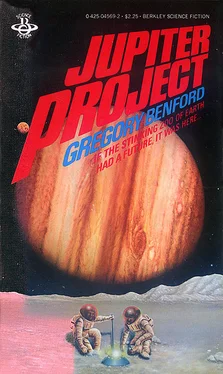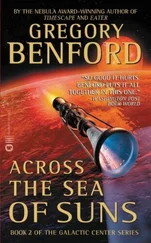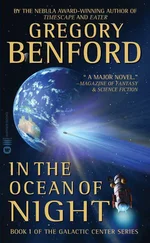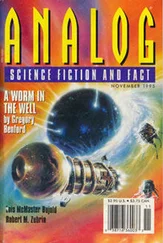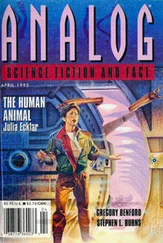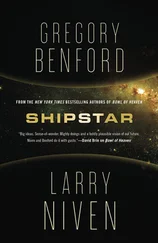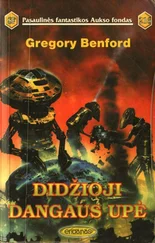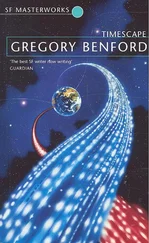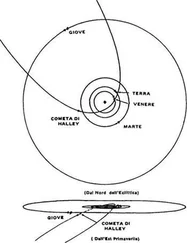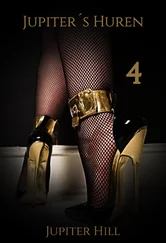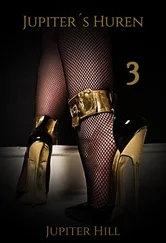Gregory Benford
THE JUPITER PROJECT
To
James Nelson Benford
…who has been there in spirit,
if not in fact.
Father of all! in every age
In every clime ador’d,
By saint, by savage, and by sage,
Jehovah, Jove, or Lord!
—Alexander Pope
Maybe I should start off with a big, gaudy description. You know—Jupiter’s churning pinks and browns, the swirling white ammonia clouds like giant hurricanes, the spinning red spots. That kind of touristy stuff.
Except I don’t feel like writing that kind of flowery crap. I’m practical, not poetic. When you’re swinging around Jupiter, living meters away from lethal radiation, you stick to facts. You get so vectors and grease seals and hydraulic fittings are more important than pretty views or poetry or maybe even people.
That’s always been my trouble—people. The way I see it is, there are always going to be some types you can’t get along with. That’s something you’ve got to face. Maybe it’s chemistry. Or as the psychers put it, “orthogonal personality constellations.” Bullshit, I’d say. But then, I’m no expert.
I tend to solve my “group dynamics adjustment” problems by going to the low-g gym. Work off the tension. We’re supposed to be psychologically in synch out here, with everybody packed into the Can, but even the psychers admit there’s always some friction somewhere. I find that working up a good sweat does wonders for my sociability index, and takes the edge off my voice. Not that I’m any great athlete; Matt Bohles will never show up in the Olympics. But at seventeen I wasn’t going to turn into a slab or flab, either, even if I did live in a steel box.
So that’s how I came to be playing zero-g squash with Yuri Sagdaeff in the first place. I wouldn’t search him out for any other reason, that’s for sure. I’d never liked him—“orthogonal personality constellation,” y’know—and I was pretty sure the feeling was mutual. But up to then we had avoided each other.
Usually I’m pretty easygoing about games. Win some, lose some—it’s no big deal. But something told me it was important to win this year’s squash tournament. I’d never even come close before, but this time… well, something in my subconscious was saying do it, dummy. So I was really pushing. I came up against Yuri in the semifinals. I guess that’s where all the trouble started.
I was losing.
I couldn’t figure it out. Things kept going wrong. Not that I was going to give up, of course. My father says a Bohles isn’t really a Bohles if he has the word quit in his vocabulary. Dad says it in this kind of cornball way of his, but basically he’s right. That’s the way I’ve been brought up. So I dug in and swore at myself under my breath, and got ready for the next point.
But, as I said, I was losing.
Yuri had just served the ball as hard as he could. I watched it carom off the wall of the tube and slam into the forecourt. The squash court is a cylinder, with its top the forecourt wall and the bottom the backcourt—only there isn’t any real top and bottom, or up and down, because there isn’t any gravity. The object is to bounce a black rubber ball off both ends of the cylinder—forecourt and backcourt—before your opponent can snag the ball with his racket.
I gathered my legs under me, trying to judge how fast that ball was moving and where I could intercept it. I knew it was probably hopeless—that ball was traveling fast —and if I missed it Yuri would have me down, 18 to 12.
I clenched my racket and jumped. The hard thing to remember, even after you’ve been out in space for years, is that in zero gravity just a little push will get you where you’re going in a hurry. Sure, your mind knows it’s true, but your body has to learn it all over again if you’ve been working in a g-field for a while.
So I overshot.
Too anxious, I guess. I jumped from one side of the tube, about halfway up the cylinder. An instant later I was coasting across, watching that squash ball bouncing back at me from the forecourt, one eye on the ball and the other on the tube wall I was approaching.
It wasn’t that the ball was too far away, at all. I could reach it with the racket. But by the time it was within range of the mighty Bohles right arm, I would have to be halfway through my somersault. That tube wall was coming up fast, remember: I had to turn over in midair and get my legs out in front to brake my velocity when I ploughed into it.
I should have been able to swat that ball and then flip with plenty of time to spare. If I’d judged it right. Only I hadn’t.
“Ah!” I cried, and Yuri laughed at the same time.
Automatically I stretched out my arms to the side and rotated them, to spin me head over heels. Partway into the somersault I had an idea—or maybe just a reflex. Anyway, I flailed around awkwardly with my racket, aiming at a spot behind my back where I knew the ball must be passing.
Thunk! The ball hit the plastic rim of my racket. I finished up my flip and cocked my head around just in time to see the ball drift lazily back into the forecourt, taking its own sweet time.
Then my boots hit the wall and I cushioned to a stop against it. Yuri yelled, started to jump and then thought better of it. The ball bounced softly off the red forecourt wall and came off at an angle. A second later it hit the tube wall and became a dead ball by the rules of the game.
“Tsk,” I said mildly. “It looks like you don’t get that point after all.”
“Luck?” Yuri said darkly.
Yuri pushed off the backcourt wall and glided down to the forecourt. He did a partial repel off the red forecourt and snared the ball, all in one deft movement.
He was good, no doubt about it. He does a lot of no-g work repairing rocket boosters, and he practices. But something was bothering me about this game. I was missing shots I shouldn’t have, not getting into position fast enough. And I had a suspicion why.
“Your serve.” he said, tossing the ball to me. Yuri is burly, muscular, and pretty imposing seen up close. He has close-cropped black hair, a square jaw and a squat, flat nose; squint your eyes a bit and he can look like a badly drawn design for a tank.
The tank said to me, “Winded?”
“Hell no! Medical Division has been worrying about you, Yuri, a heart attack, so I thought I’d take it easy an you.” Even as I said it I knew it sounded pretty lame, just a lot of phony bravado. It did some good, though—Yuri started turning slightly purple. But then he blinked, as if he were reminding himself that I was razzing him from a position of weakness, and turned away with a grunt.
“Serve, kid.”
I decided to try my hunch. I drifted to the back of the cylinder and braked to a stop. Yuri crouched against the wall of the tube midway between the two end walls.
I brought my racket around and served the ball in a diagonal away from him. It hit the forecourt wall with a spock and seemed to be traveling pretty fast to me. Yuri pushed off, taking all the time in the world, and swatted the little black ball as it went by him.
Ordinarily, to win the point I’d be turning by this time, wind-milling my arms, getting set up for the shot. But I wasn’t concerned about the point: I wanted to watch Yuri. One of the tough parts of no-g squash is the fact that maneuvering takes all your attention, usually with your back to your opponent. You can’t keep your eye on the ball a lot of the time. So a sort of Gentlemen’s Convention has evolved; it says that you should get out of the way between your opponent and the ball, so that when he does get a glance at it he can see.
Читать дальше
